Table of Contents
Imagine the joy and assistance that a service dog could provide in your life. From providing emotional support to aiding with physical tasks, these highly trained canines are truly life-changing. If you are residing in Singapore and interested in getting a service dog, understanding the process is crucial. In this article, we will take a closer look at the steps involved in acquiring a service dog in Singapore, shed light on the requirements, and explore the benefits of having a four-legged companion by your side. Get ready to embark on a journey towards a brighter and more fulfilling future with your very own service dog.
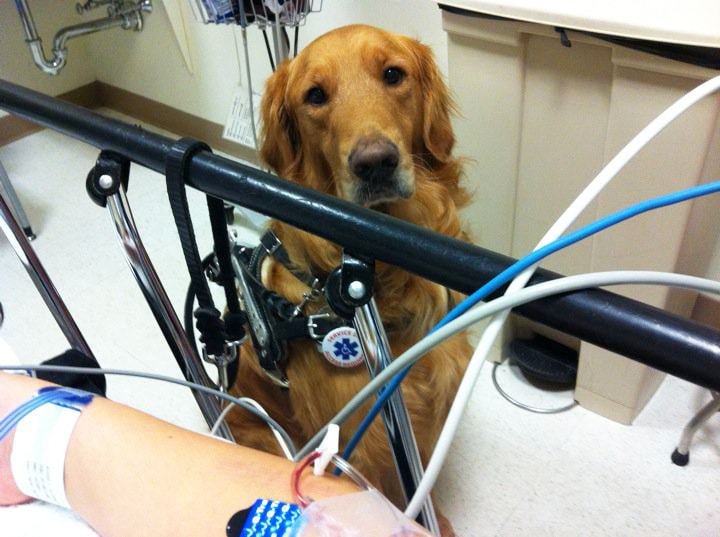
Requirements for Getting a Service Dog
Physical Disabilities
To qualify for a service dog in Singapore, you must have a physical disability that significantly impacts your daily life. Whether it is a mobility impairment, hearing loss, or visual impairment, you should have a clear understanding of how a service dog can assist you in overcoming the challenges you face.
Medical Condition or Mental Illness
In addition to physical disabilities, service dogs can also be an invaluable support for individuals with medical conditions or mental illnesses. Conditions such as epilepsy, diabetes, autism, and post-traumatic stress disorder (PTSD) may also qualify you for a service dog. However, it is important to consult with medical professionals to determine if a service dog is the right fit for your specific condition.
Age and Health
There are no specific age restrictions for obtaining a service dog in Singapore. However, it is crucial that both you and the dog are in good health to ensure a successful partnership. Your ability to care for and manage a service dog should also be taken into consideration.
Singapore Citizen or Permanent Resident
To be eligible for a service dog in Singapore, you must be either a Singapore citizen or a permanent resident. This requirement ensures that the resources and support provided by service dog organizations are primarily allocated to those who are legally bound to reside in Singapore.
Proof of Disability or Medical Condition
To validate your need for a service dog, you will need to provide relevant medical documentation and proof of your disability or medical condition. This can include medical reports, official diagnosis documents, and letters from healthcare professionals familiar with your condition. It is important to have these documents prepared when applying for a service dog.
Choosing a Service Dog
Identifying the Need for a Service Dog
Before embarking on the process of getting a service dog, it is essential to clearly identify and evaluate your specific needs. Reflect on the daily tasks and challenges you face, and consider how a service dog can provide assistance.
Evaluating Personal Needs and Lifestyle
Every individual has unique needs and lifestyles, and it is imperative to consider these factors when choosing a service dog. Consider aspects such as energy levels, exercise requirements, and grooming needs to ensure the dog’s characteristics align with your lifestyle.
Researching Breeds and Organizations
Thoroughly researching different dog breeds and service dog organizations is crucial to finding the right fit. Different breeds have varying temperaments and abilities that may be better suited for specific disabilities. Additionally, reach out to reputable service dog organizations that provide training and support services for individuals in Singapore.
Meeting and Interacting with Different Dogs
Arrange to meet and interact with various service dogs to gain a better understanding of their temperaments and working styles. This hands-on experience can help you determine which type of dog is most compatible with you and your specific needs.
Waiting Time and Availability
Keep in mind that the availability of service dogs can vary, and there may be a waiting period before you are matched with a suitable dog. Factors such as specific requirements, breed preferences, and training availability can influence the waiting time. Patience is key during this process.
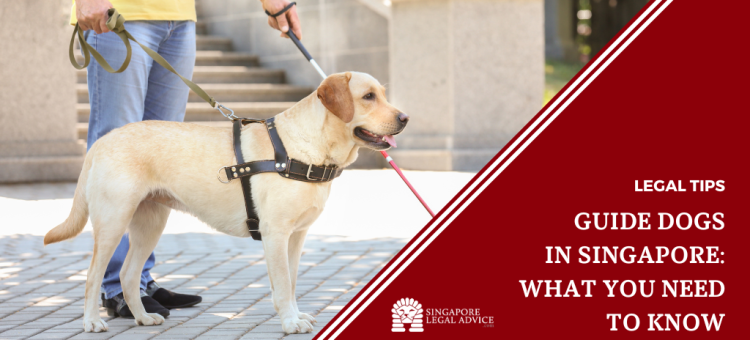
Application Process
Contacting a Service Dog Organization
Once you have identified your need for a service dog and conducted thorough research, it is time to reach out to a reputable service dog organization in Singapore. Contact them to inquire about their application process, requirements, and any additional information you may need.
Completing a Service Dog Application
The service dog organization will provide you with an application form that needs to be completed accurately and honestly. This form will ask for personal information, details about your disability or medical condition, and your specific needs and preferences.
Medical Evaluation and Recommendation
As part of the application process, you may be required to undergo a medical evaluation by a healthcare professional. This evaluation will help determine your suitability for a service dog and provide a recommendation regarding the type of assistance the dog can provide.
Home Visit and Assessment
A representative from the service dog organization may conduct a home visit to assess your living environment and ensure it is suitable for a service dog. They will evaluate factors such as space, safety, and accessibility to determine if it is an appropriate setting for the dog.
Training Cost and Financial Assistance
Service dog programs often come with a cost to cover the expenses associated with training and maintaining the dog. However, financial assistance options may be available through grants, sponsorships, or fundraising initiatives. Be sure to discuss these possibilities with the service dog organization during the application process.
Training and Certification
Basic Skills Training
Once you have been matched with a service dog, the training process will begin. This initial training focuses on teaching the dog basic obedience skills, such as walking on a leash, responding to commands, and maintaining calm behavior in public settings.
Public Access Training
Public access training is a crucial aspect of service dog training. During this training, the dog is taught to behave appropriately in various public environments, including shops, restaurants, and public transportation. The dog learns to remain calm and focused on its handler while ignoring distractions.
Task Training for Specific Disabilities
Service dogs are trained to perform specific tasks or actions that assist their handlers in carrying out daily activities. For example, a service dog for someone with mobility impairments may be trained to retrieve objects, open doors, or provide stability while walking. The training focuses on teaching the dog these specialized tasks based on the handler’s needs.
Duration of Training
The training period for service dogs can vary depending on the breed, the complexity of tasks required, and the individual dog’s learning ability. Training can take several months to a year or more. Patience and dedication are essential throughout this process.
Certification and Identification
Upon successfully completing the training program, your service dog may receive a certification or identification that confirms its role as a service dog. This documentation may be required for public access rights and to provide credibility in situations where the dog’s presence may be questioned.
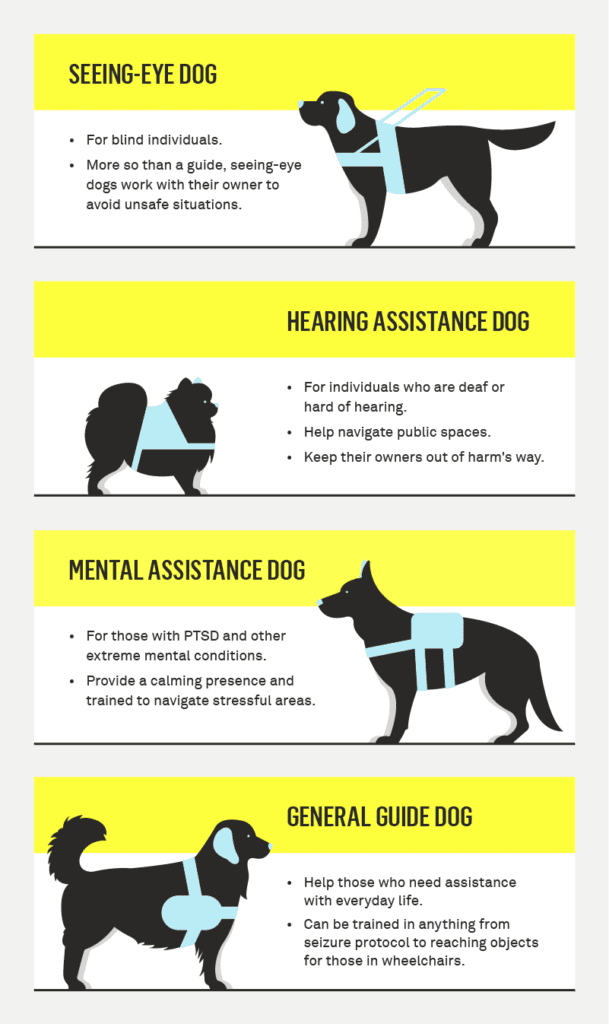
Responsibilities of a Service Dog Handler
Financial Responsibilities
As a service dog handler, you have the responsibility to provide for the well-being of your dog. This includes covering expenses such as food, veterinary care, grooming, and necessary equipment like leashes and harnesses. It is important to budget for these costs and ensure the dog’s needs are met.
Maintaining Health and Hygiene
Regular veterinary check-ups, vaccinations, and grooming are essential for maintaining the health and hygiene of your service dog. Monitoring the dog’s overall well-being and addressing any health concerns promptly is crucial to ensure the dog remains fit and able to perform its duties effectively.
Ongoing Training and Refresher Courses
While service dogs undergo extensive training initially, ongoing training and refresher courses are essential to maintain their skills and behaviors. Regular practice and reinforcement of commands and tasks will keep the dog sharp and adaptable to changing environments.
Adhering to Public Access Rights and Etiquette
As a service dog handler, it is your responsibility to educate yourself on the rights and responsibilities associated with having a service dog in public spaces. Familiarize yourself with local laws and regulations, and adhere to proper etiquette to ensure a positive experience for both yourself and the public.
Updating Records and Documentation
Keep all documentation and records related to your service dog up to date. This includes veterinary records, training certifications, identification cards, and any additional documentation required for public access. Regularly review and update these records as necessary.
Public Access Rights and Etiquette
Recognized Service Dog Teams
In Singapore, service dogs and their handlers are recognized under the law. The Guide Dogs and Service Dogs Act recognizes service dog teams as legally protected and grants them the right to access public places and transportation that are open to the public.
Access to Public Places and Transportation
Service dogs and their handlers have the right to access various public places, including shops, restaurants, medical facilities, and public transportation. They should be allowed entry without discrimination or additional fees, as long as the dog remains well-behaved and under control at all times.
Rights and Responsibilities of Handler and Dog
Both the handler and the service dog have rights and responsibilities when it comes to public access. The handler must ensure the dog’s behavior is appropriate and that it does not infringe on the rights of others. Meanwhile, the dog is responsible for remaining calm, obedient, and focused on its handler’s needs.
Educating the Public on Service Dogs
Part of the responsibility of a service dog handler is to educate the public about the role and importance of service dogs. This can involve politely informing others about the service dog’s purpose and the laws that protect their rights to access public spaces.
Managing Interactions with Strangers
While many people may be curious or fascinated by service dogs, it is essential to manage interactions with strangers properly. This involves educating others about appropriate behavior around service dogs and discouraging actions that may distract or interfere with the dog’s work.
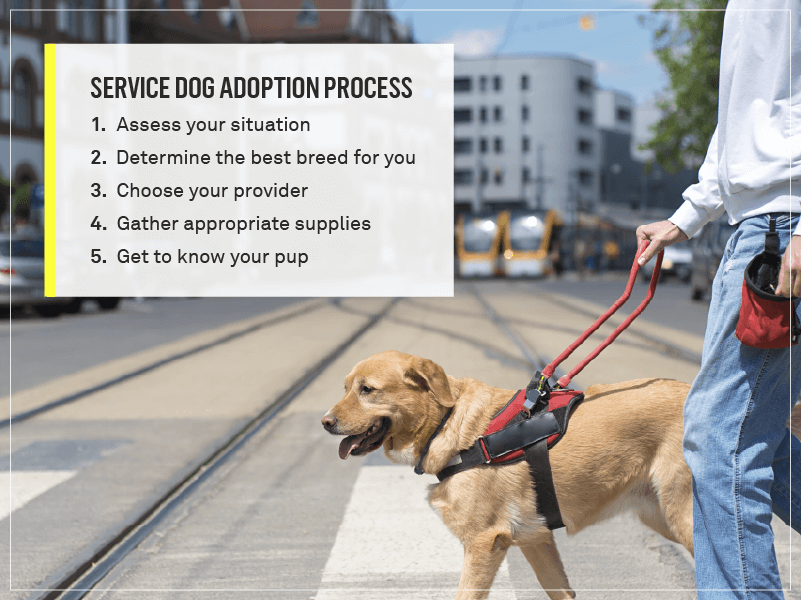
Benefits of Having a Service Dog
Improved Independence and Mobility
One of the key benefits of having a service dog is the increased independence and mobility it provides. Service dogs can assist with tasks such as opening doors, retrieving objects, or providing stability while walking, enabling individuals with disabilities to navigate their daily lives more easily.
Emotional Support and Companionship
Service dogs offer not only practical assistance but also emotional support and companionship. Their constant presence and unwavering loyalty can provide comfort and reassurance, especially for individuals with mental health conditions or those feeling isolated due to their disabilities.
Increased Confidence and Quality of Life
Having a service dog by your side can significantly boost your confidence and enhance your overall quality of life. The dog’s training and ability to assist with daily tasks gives you a sense of empowerment, enabling you to engage more confidently in social activities and pursue personal goals.
Social Interaction and Inclusion
Service dogs can act as social icebreakers, facilitating positive interactions with others. They can help bridge the gap between individuals with disabilities and the wider community, encouraging inclusivity and breaking down barriers.
Improved Mental and Physical Health
Studies have shown that service dogs can have a positive impact on mental and physical health. The presence of a service dog has been linked to decreased stress levels, improved mood, increased physical activity, and reduced feelings of loneliness or depression.
Challenges and Limitations
Limited Availability and Waiting Time
Due to the high demand for service dogs and the extensive training they require, there may be a limited number of dogs available at any given time. This can result in a waiting period before being matched with a suitable service dog.
Financial Constraints and Costs
The cost associated with obtaining and maintaining a service dog can pose financial challenges. From initial training fees to ongoing expenses, such as veterinary care and specialized equipment, it is important to carefully consider and budget for these costs.
Despite legal recognition and rights, service dog handlers may still face misconceptions and ignorance from the public. Educating others about the purpose and importance of service dogs can be an ongoing challenge, requiring patience and perseverance.
Potential Allergies and Phobias
Service dogs are typically well-groomed and hypoallergenic, but individuals may still have allergies or phobias related to dogs. This can limit their ability to fully benefit from having a service dog or may require additional measures to address these concerns.
Need for Permanent Commitment
Owning a service dog is a long-term commitment that requires dedication, time, and resources. The dog relies on its handler for care, training, and support throughout its life. It is important to be prepared for this level of commitment before embarking on the journey of having a service dog.
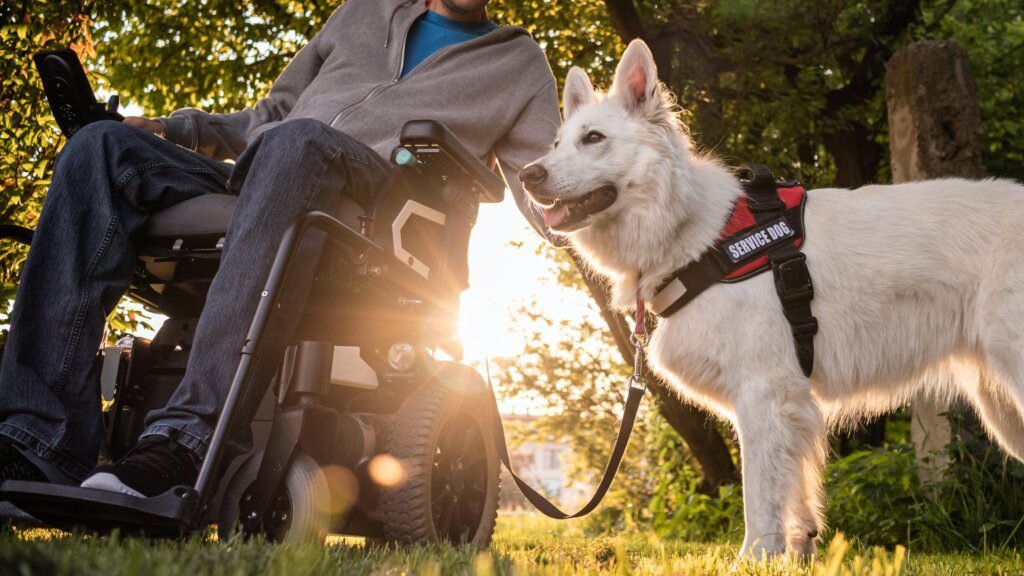
Alternatives to Service Dogs
Assistance Dogs
Assistance dogs encompass various types of trained animals that provide assistance to individuals with disabilities. These can include guide dogs for the visually impaired, hearing dogs for deaf individuals, and mobility assistance dogs for those with physical disabilities.
Therapy Dogs
Therapy dogs differ from service dogs in that they provide emotional support and comfort to individuals in a therapeutic or medical setting. These dogs are trained to interact with people in hospitals, nursing homes, schools, and other facilities to provide companionship and promote well-being.
Emotional Support Animals
Emotional support animals (ESAs) provide companionship and emotional support to individuals with mental health conditions. Unlike service dogs, they do not have specialized training to perform specific tasks but can offer comfort and alleviate symptoms of anxiety, depression, and other mental health conditions.
Adaptive Aids and Assistive Technology
For individuals whose disabilities can be managed with adaptive aids and assistive technology, these options may provide alternatives to service dogs. Devices such as canes, hearing aids, and mobility aids can enhance independence and mitigate limitations associated with various disabilities.
Support Services and Programs
Beyond animals and technology, numerous support services and programs are available to assist individuals with disabilities. These can include rehabilitation services, vocational training, counseling, and support groups. It is important to explore all available resources to determine which best meet your needs.
The Future of Service Dogs in Singapore
Growing Awareness and Acceptance
The awareness and acceptance of service dogs in Singapore are gradually increasing as more individuals and organizations gain a better understanding of their importance and benefits. This growing awareness is essential for creating an inclusive society that supports individuals with disabilities.
Expansion of Training Programs
With the increasing demand for service dogs, there is a need to expand training programs to meet the needs of individuals in Singapore. By investing in and expanding these programs, more individuals will be able to access and benefit from the assistance provided by well-trained service dogs.
Collaboration with Healthcare and Rehabilitation Services
Collaboration between service dog organizations and healthcare and rehabilitation services can enhance the overall support available to individuals with disabilities. This collaboration can ensure a comprehensive and holistic approach to the care and well-being of individuals with service dogs.
Advocacy for Legal Protections and Rights
Efforts are underway to advocate for stronger legal protections and rights for individuals with service dogs in Singapore. By establishing clearer guidelines and regulations, service dog teams can have greater assurance of their rights, ensuring a more inclusive and accessible society.
Research and Development in Assistance Animals
Continued research and development in the field of assistance animals can lead to advancements in training techniques, specialized tasks, and overall improvements in the effectiveness of service dogs. This ongoing progress will further enhance the lives of individuals with disabilities and the support provided by service dogs.
In conclusion, obtaining a service dog in Singapore requires meeting specific requirements and going through a comprehensive application and training process. The benefits of having a service dog are numerous, providing increased independence, emotional support, and improved quality of life. While challenges and limitations exist, such as availability and costs, individuals with disabilities are also presented with alternative support options. The future of service dogs in Singapore is promising, with efforts focused on raising awareness, expanding training programs, and advocating for legal protections and rights. As Singapore continues to embrace service dogs, individuals with disabilities can look forward to an increasingly inclusive and supportive society.



